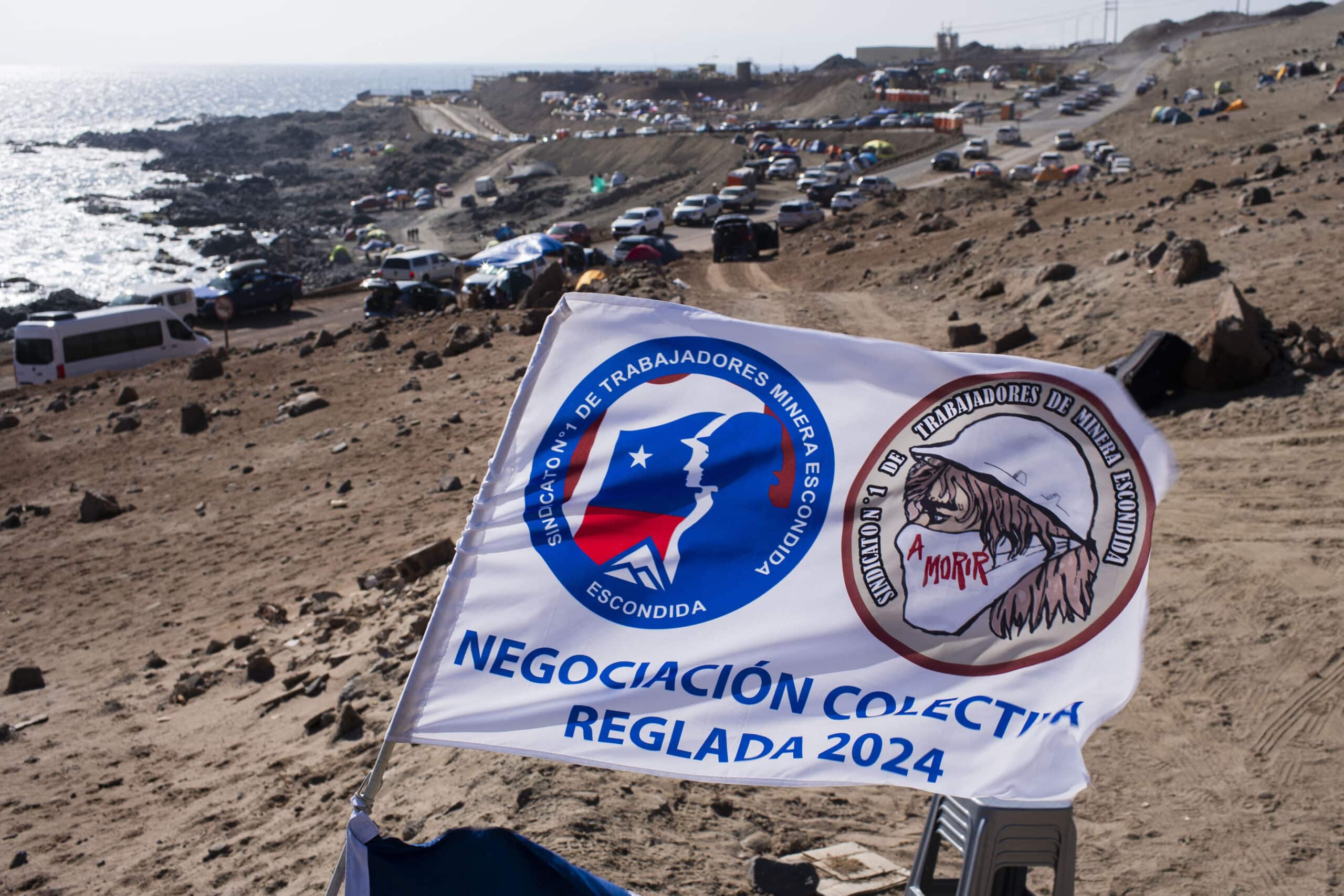
View at the camp site of workers from the Escondida copper mine during strike after failing to reach a labor agreement with Australian group BHP, in Puerto Coloso, Antofagasta, Chile, on August 14, 2024. – Workers at the world’s largest copper mine in Chile are striking after pay talks fell apart, casting a shadow of uncertainty over the market for the commodity as the Escondida mine digs up around five percent of the world’s copper, a coveted metal used in everything from electrical wiring to rechargeable batteries. (Photo by SEBASTIAN ROJAS ROJO / AFP)
Santiago, Chile — Workers at the world’s largest copper mine, in Chile, called off a strike Friday after reaching a pay agreement with Australian mining giant BHP.
The labor action, which started Tuesday at Escondida mine, was ended after the company came up with a new proposal acceptable to workers, the No.1 union said in a statement.
The strike had been suspended on Friday morning as negotiations reopened on workers’ demands for shorter work days and bigger bonuses, among others.
BHP said the parties had reached consensus “on a proposal for a new collective bargaining contract.”
READ: Workers at world’s biggest copper mine in Chile go on strike: union
A key sticking point had been a demand for the equivalent of one percent of shareholder dividends to be shared among workers.
Chile is the world’s largest copper producer with annual production of more than five million metric tons, nearly a quarter of global output.
Escondida, an open-air mine located in Antofagasta in the country’s north, produces close to 1.1 million tons of copper a year — some 5.4 percent of global supply.
No.1, which represents 2,400 Escondida workers, said Friday it had reached agreement on retirement benefits, health coverage and improvements in education opportunities for mine employees and their children.
Negotiators also agreed on a once-off bonus of $35,000 per worker.
When workers at the mine went on a 44-day strike in 2017 — the longest in Chile’s mining history — BHP lost $740 million, contributing to a 1.3 percent decline in the country’s GDP.
Copper rush
Copper, an electrical conductor used in wiring, is seen as a bedrock of emerging clean energy industries.
It is a crucial component in the manufacturing of solar panels, electric vehicles, wind turbines and rechargeable batteries.
Copper prices have increased about 400 percent in the past quarter of a century, and broke $10,000 a tonne in April for the first time in two years.
Global demand is expected to grow by up to 2.5 percent a year.
The Escondida mine, meaning “hidden” in English, was named in reference to the bulging ore deposits obscured deep under the barren surface of Chile’s northern Atacama Desert.
BHP owns just under 60 percent of the mine, alongside minority partners Rio Tinto and Japan’s JECO Corp.
Chile accounts for roughly a quarter of the world’s copper. Other top producers are Peru, China, and the Democratic Republic of Congo.

